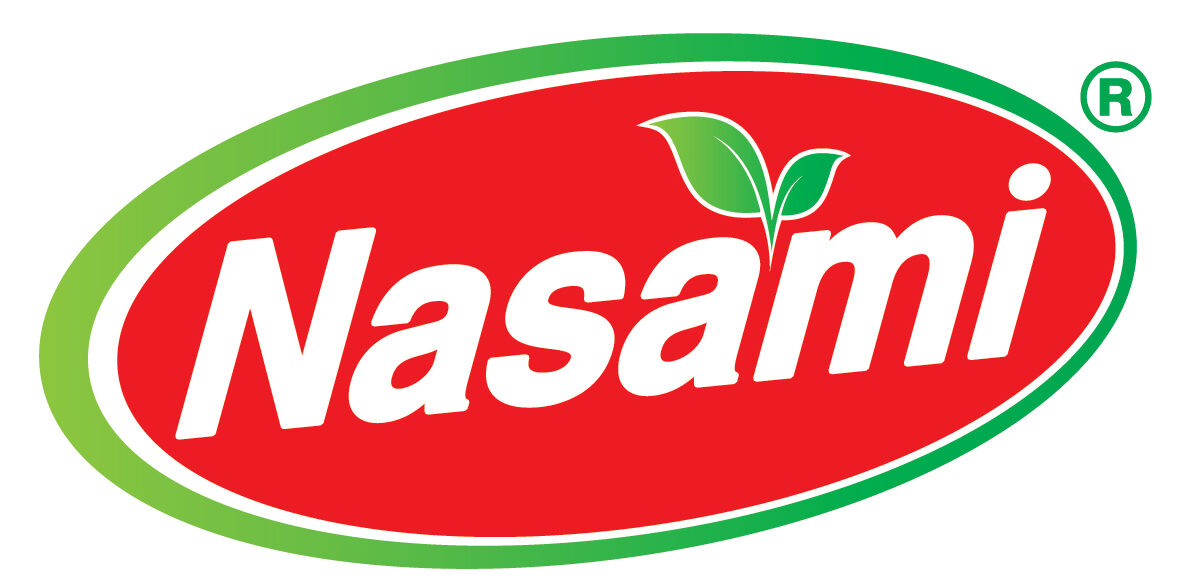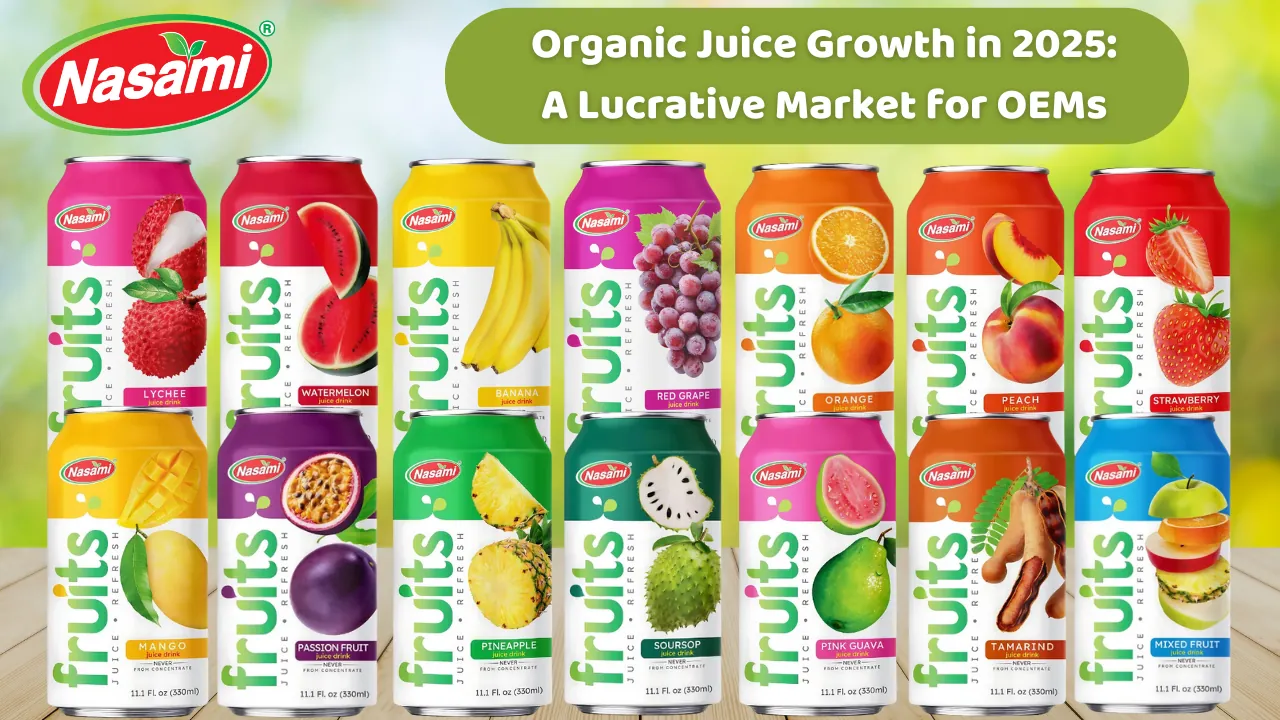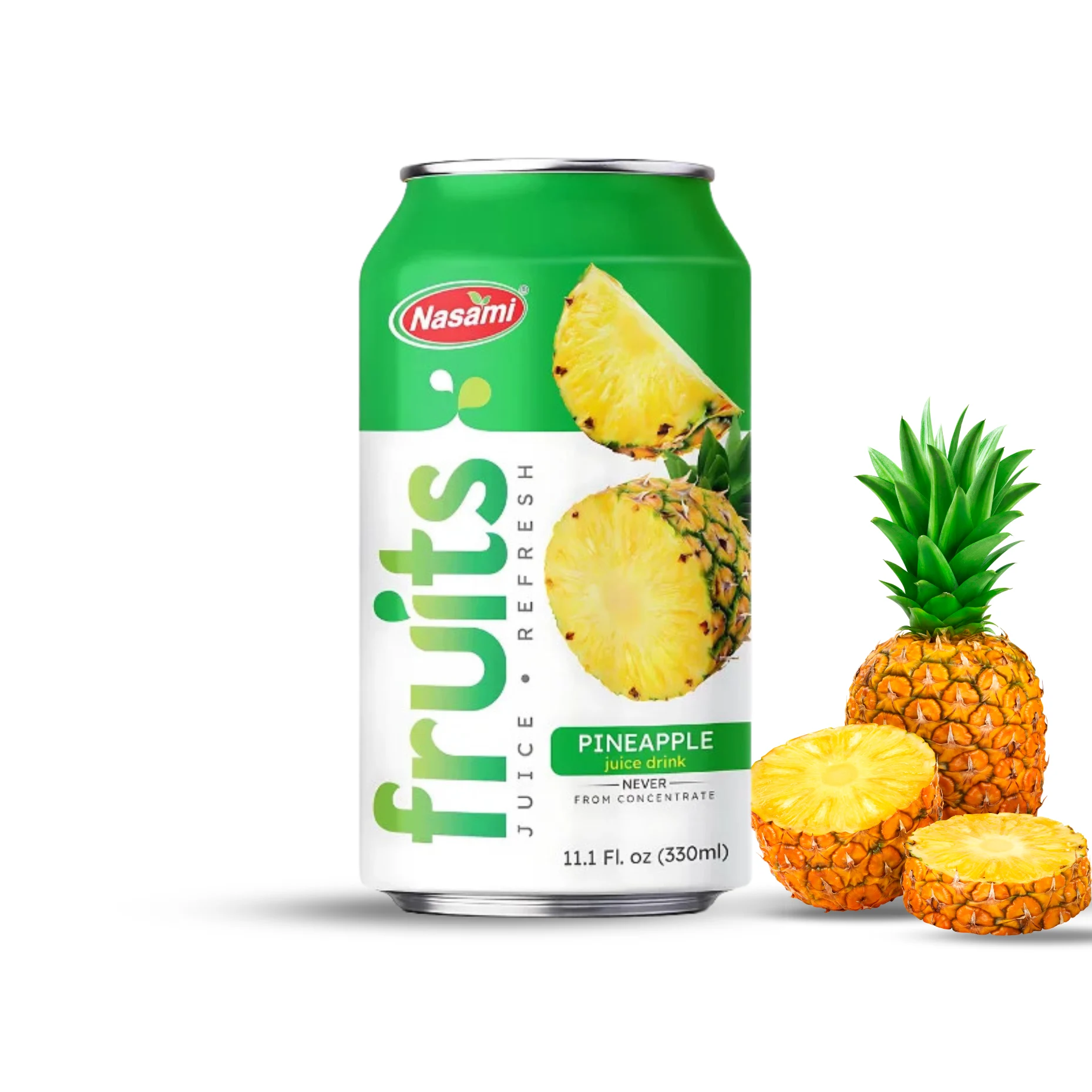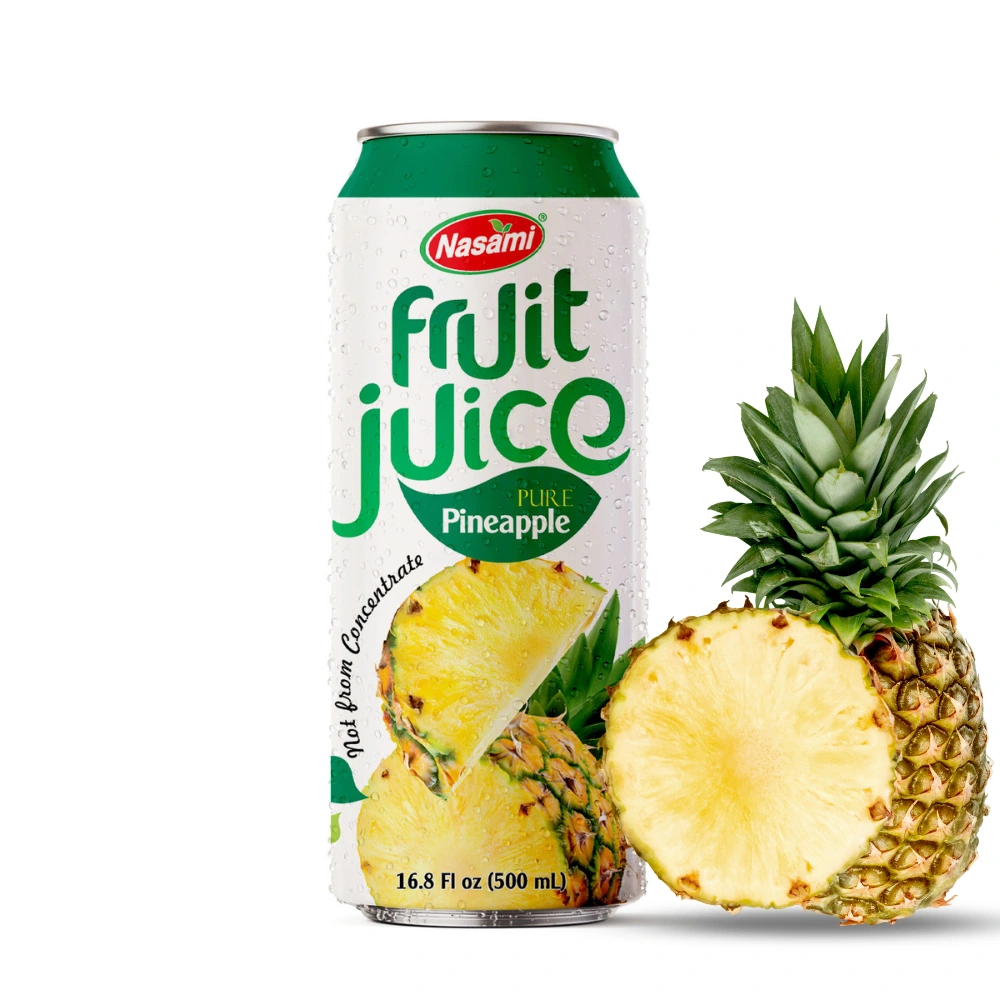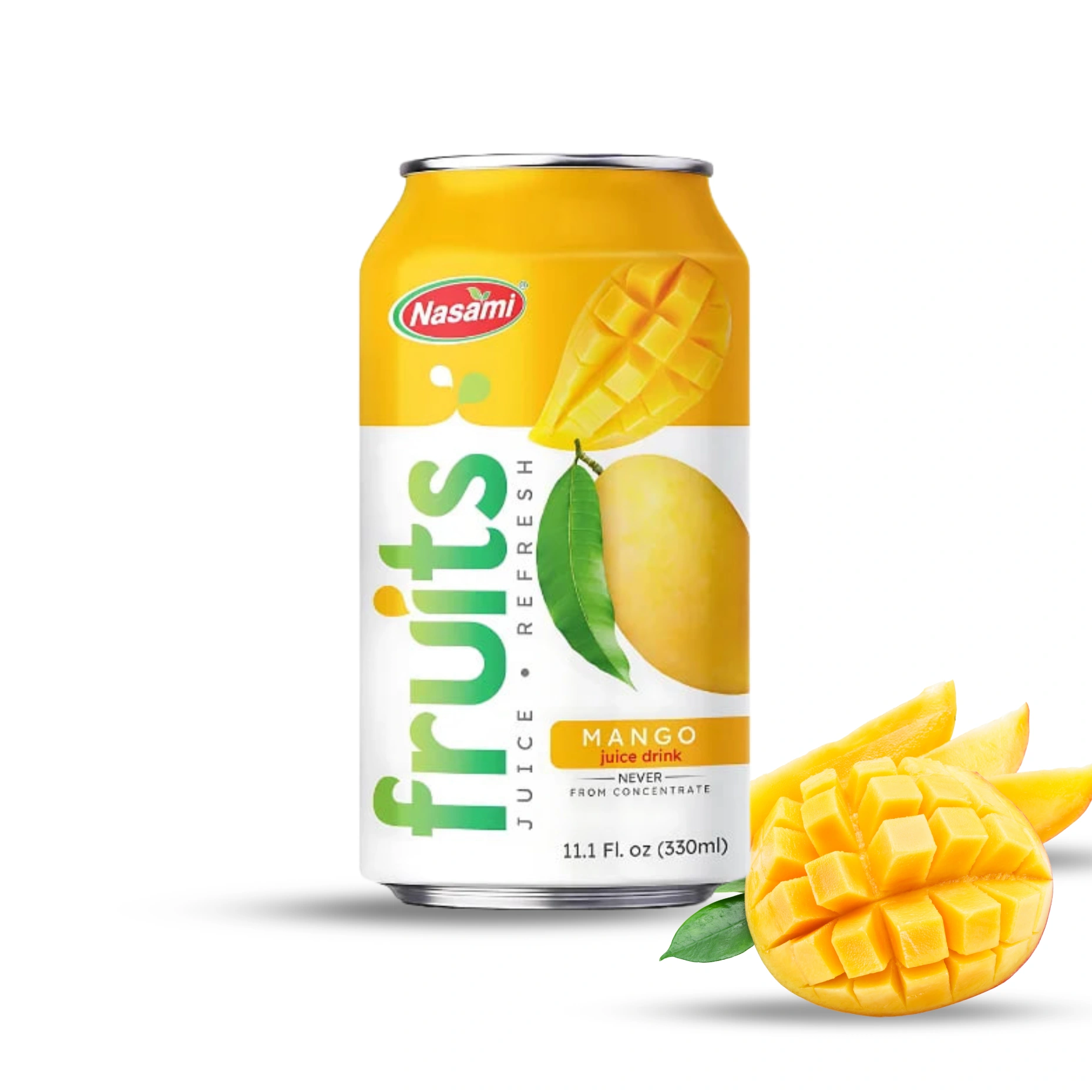As the demand for healthier beverages continues to rise, the organic juice market is set for significant growth in 2025. Consumers are prioritizing natural ingredients, sustainability, and clean-label products, creating a prime opportunity for OEM manufacturers. Brands are actively seeking reliable partners to develop high-quality juices that meet evolving market trends. For OEMs, this shift presents a lucrative chance to expand their business, strengthen partnerships, and capitalize on the growing preference for organic drinks. Understanding key industry drivers and market potential will be essential for success in this competitive landscape.
Table of Content
Toggle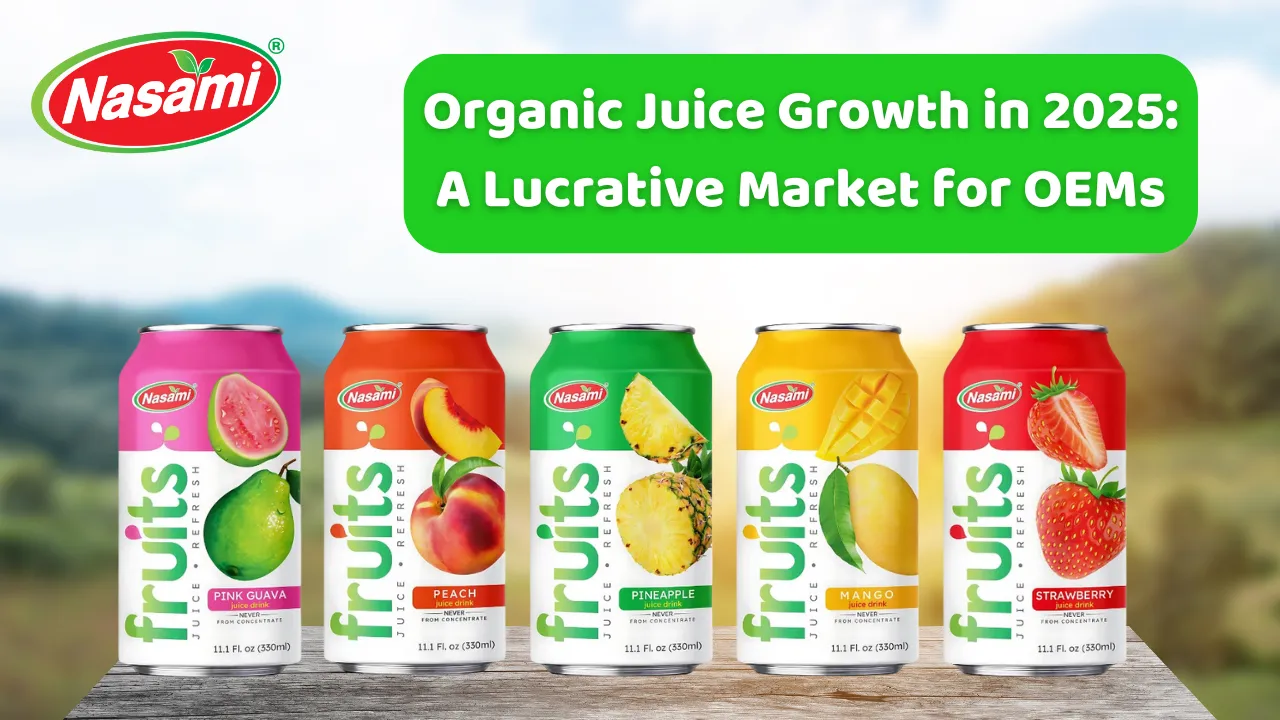
The Booming Demand for Organic Juice in 2025.
Rising Consumer Preference for Organic Beverages
The global juice market is witnessing a significant rise in demand as consumers increasingly prioritize health-conscious choices. The shift towards organic beverages is driven by growing awareness of synthetic additives, preservatives, and artificial sweeteners found in conventional juices. In 2025, this trend is expected to accelerate, creating new opportunities for OEMs specializing in organic juice production.
Organic juice, free from synthetic fertilizers and pesticides, appeals to health-conscious consumers and businesses seeking premium beverage options. B2B buyers, including wholesalers, distributors, and private-label brands, are capitalizing on this demand to expand their product portfolios.
Key Market Drivers for Organic Juice
Several factors contribute to the booming growth of the organic juice market:
- Health Awareness: Increasing concerns about obesity, diabetes, and cardiovascular diseases drive demand for natural and organic beverages.
- Government Regulations: Stricter policies on food additives and synthetic ingredients encourage companies to shift toward organic-certified products.
- Sustainability Concerns: Eco-conscious consumers favor organic juice brands that promote sustainability and ethical sourcing.
- Premiumization Trend: Organic juices are perceived as high-quality products, allowing businesses to command premium pricing.

Opportunities for OEMs in the Organic Juice Industry
OEMs Catering to B2B Clients
The organic juice sector presents substantial opportunities for OEMs focusing on private-label and contract manufacturing. B2B clients, including retailers, foodservice providers, and online distributors, seek reliable OEM partners to develop custom juice lines without investing in production facilities.
OEMs offering high-quality organic juice production with sterilization methods such as Hot Filling and ARS (Aseptic Room Sterilization) can meet the growing demand. Unlike UHT processing, which some brands avoid, these sterilization techniques help maintain the natural taste and nutritional integrity of juice while ensuring safety and shelf stability.
Key Advantages of Partnering with an OEM
Businesses partnering with OEMs can benefit from:
- Cost Efficiency: Eliminating the need for in-house production lowers capital investment.
- Scalability: OEMs provide flexibility in production volumes, meeting seasonal and bulk demand.
- Customization: Tailored formulations, packaging, and labeling help brands differentiate themselves in the competitive market.
- Regulatory Compliance: Certified OEMs ensure adherence to organic certifications and food safety standards.
Get information about all products of Nasami Beverages.
Packaging Trends in Organic Juice: Aluminum Cans and PET Bottles
Why Aluminum Cans Are Gaining Popularity
Aluminum cans are an ideal choice for organic juice packaging, offering several advantages for B2B buyers:
- Sustainability: 100% recyclable and eco-friendly, aligning with consumer demand for green packaging.
- Extended Shelf Life: Excellent barrier protection against light, oxygen, and contaminants.
- Portability and Convenience: Lightweight and easy to transport for large-scale distribution.
For OEMs, offering organic juice in aluminum cans can attract eco-conscious brands looking to strengthen their sustainability credentials. Businesses focusing on retail distribution, vending machines, and export markets can benefit from aluminum packaging’s durability and extended freshness.
The Role of PET Bottles in Organic Juice Distribution
PET bottles remain a preferred packaging option for OEMs targeting large-scale distribution. Their advantages include:
- Cost-Effective Production: Lower manufacturing and transportation costs compared to glass bottles.
- Customizable Designs: Flexible shapes, sizes, and branding options enhance market appeal.
- Consumer Safety: Shatterproof and lightweight, making them suitable for e-commerce and bulk orders.
Juice brands catering to supermarkets, foodservice chains, and online retailers often prefer PET packaging due to its versatility and cost-effectiveness.

Key Considerations for OEMs Entering the Organic Juice Market
Organic Certification and Compliance
OEMs must adhere to strict organic standards to maintain product integrity and consumer trust. Key certifications include:
- USDA Organic (United States)
- EU Organic Certification (Europe)
- JAS Organic (Japan)
- Halal and Kosher Certifications for Specific Markets
B2B clients seeking organic juice suppliers prioritize compliance with these standards, ensuring their products meet international requirements for distribution and labeling.
Supply Chain and Ingredient Sourcing
Sourcing high-quality organic ingredients is a critical aspect of OEM operations. Key considerations include:
- Reliable Organic Farms: Partnering with certified suppliers ensures consistency and product traceability.
- Sustainable Sourcing Practices: Ethical and environmentally friendly farming methods enhance brand reputation.
- Seasonal Availability: Managing ingredient sourcing based on harvest cycles to ensure continuous production.
OEMs specializing in organic juice must build strong supplier relationships to maintain a stable and high-quality ingredient supply.

Emerging Market Trends and Future Outlook
Growing Demand for Functional Organic Juices
Beyond traditional organic fruit juices, the market is witnessing a surge in demand for functional beverages. These include organic juices infused with:
- Superfoods: Ingredients like turmeric, ginger, and spirulina for added health benefits.
- Probiotics: Supporting gut health and digestion, appealing to wellness-focused consumers.
- Plant-Based Proteins: Catering to fitness and vegan audiences looking for nutritious drink options.
OEMs that innovate with functional organic juice formulations will gain a competitive edge in 2025.
Expansion of E-Commerce and Direct-to-Consumer Sales
With the rapid growth of online retail, many juice brands are shifting towards direct-to-consumer (DTC) models. OEMs should optimize their production and packaging to accommodate:
- Bulk Orders for Subscription Services: Providing consistent product supply for health-conscious consumers.
- Eco-Friendly Packaging for E-Commerce: Ensuring durability during shipping while maintaining sustainability.
- Personalized Branding for Online Marketplaces: Helping private-label brands establish a strong online presence.
The e-commerce boom presents a lucrative channel for OEMs to supply juice brands looking to expand beyond traditional retail.

Geographical Expansion and Export Opportunities
As organic juice gains traction worldwide, emerging markets in Asia, Latin America, and the Middle East present growth opportunities. OEMs should focus on:
- Navigating Import Regulations: Understanding compliance requirements for different regions.
- Customizing Flavors for Local Preferences: Developing region-specific organic juice variations.
- Building Strategic Distribution Networks: Partnering with local distributors to streamline market entry.
The global expansion of organic juice brands will drive increased demand for OEM partnerships in the coming years.
By capitalizing on these trends and offering high-quality, organic-certified products in aluminum cans and PET bottles, OEMs can establish themselves as key players in the thriving organic juice market of 2025.
High-Quality Organic Juice OEM Solutions by Nasami
Nasami is a trusted manufacturer of premium organic juice, delivering high-quality beverages crafted from fresh fruits sourced from Vietnam’s finest farms. Our production process follows strict hygiene and food safety standards, ensuring that every bottle retains its natural nutrients and flavors. Using advanced hot filling and sterilization techniques, we preserve the freshness of our juices while meeting international quality certifications for global markets. With experienced leadership, a skilled R&D team, and professional packaging design, we provide OEM and private label services to help brands create standout products. Offering superior quality at competitive pricing, Nasami is your ideal partner for organic juice production. Partner with us today and bring the pure taste of Vietnam to your customers!
View more:
Best Green Juices for Private Label & B2B 2025
BeetRoot Juice Trends: A Powerful Game-Changer for OEM & ODM 2025
Aloe Juice Export: Unlocking High Demand Opportunities 2025
Your Ultimate OEM Strawberry Juice Partner – Ready for the Global Market 2025
Weight Loss Juice OEM & ODM – Nasami’s Innovative Formulas
